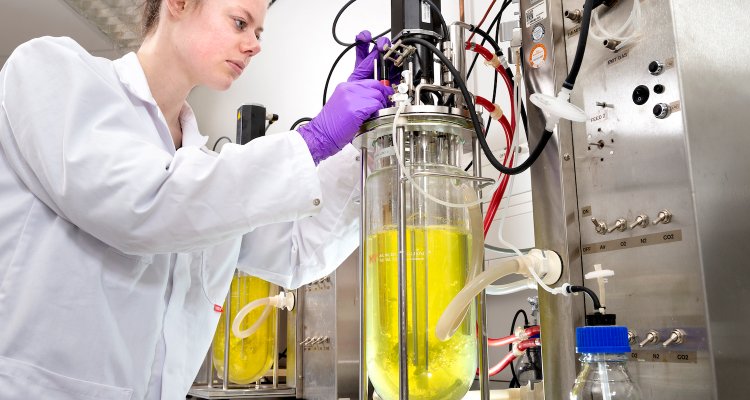
Project
Electrons and CO2 to fatty acids through electrolysis and fermentation (EFA)
The goal of EFA is to develop a post-fossil era innovative, sustainable and economically competitive process for direct CO2 utilization using energy from sustainable resources, via combination of electrochemistry and fermentation for the formation of fatty acids and microbial protein.
Currently, the chemical industry relies heavily on fossil based feedstock and energy, being responsible in the Netherlands alone to up to 40% emission of greenhouse gases. In the EFA project, we put forward a technology suitable for a post fossil era based on renewable electricity and carbon feedstock.
Energy from sustainable sources, e.g. wind turbines or solar cells, will in near future be available in excess, especially when weather conditions are optimal. The intermittency of the renewable electricity sources brings forward the need for energy storage. At large scale, energy storage can be done in chemicals. Electrochemical conversion of the energy and carbon dioxide into formic acid or other organic acids is a very efficient way to tackle this issue of energy storage. In order to produce larger chain value-added organic molecules from renewable energy and carbon dioxide, electrolysis is combined with microbial. To this end, EFA concentrates on maximal utilization of renewable power and feedstock, to produce fatty acids and microbial proteins via integration of electrochemical conversion and fermentation routes.
Project partners
This project is a collaboration between Wageningen Food and Biobased Research (coordinator), TNO (Sustainable Process and Energy Systems, ww.tno.nl) as research institutions and the companies KLK Kolb Specialities B.V., Aqua Minerals B.V and the Ecover Co-ordination Center BV.
Financing
This project has received funding from the Dutch subsidy program TSE Industrie Onderzoek & Ontwikkeling 2022, under project number TIND-22-01-03095331.